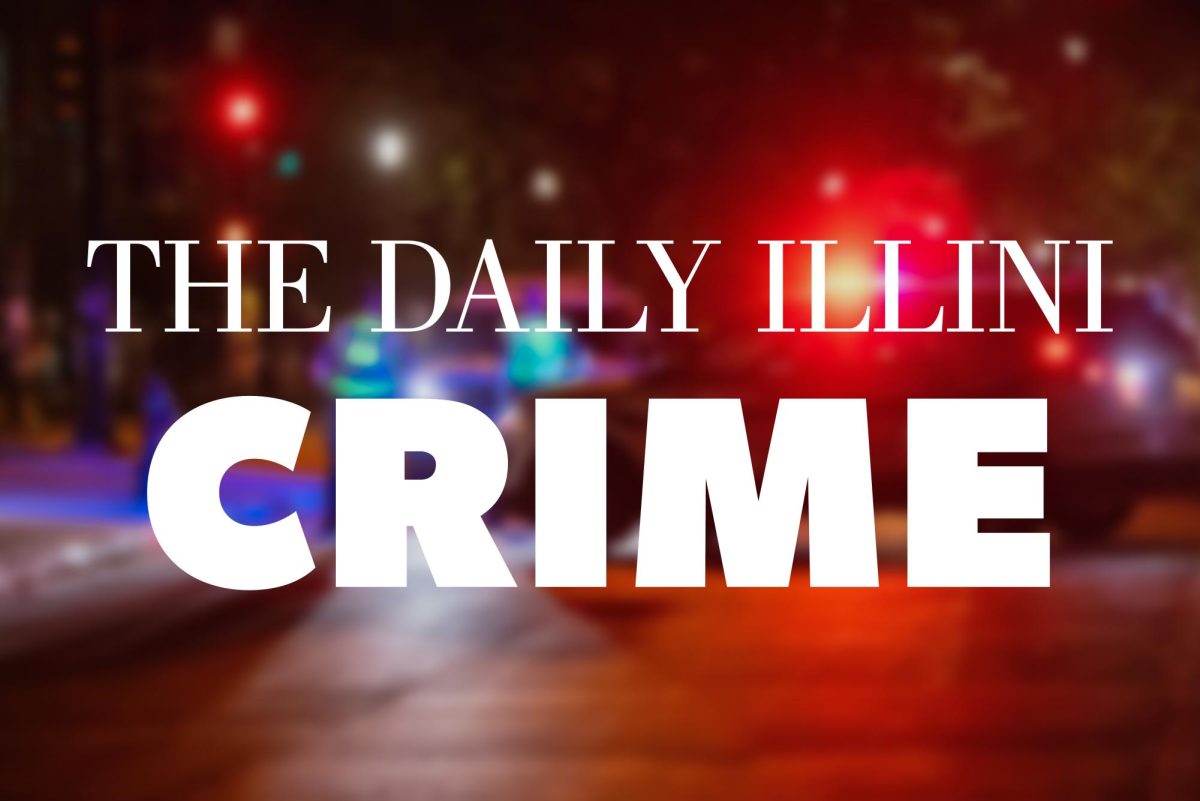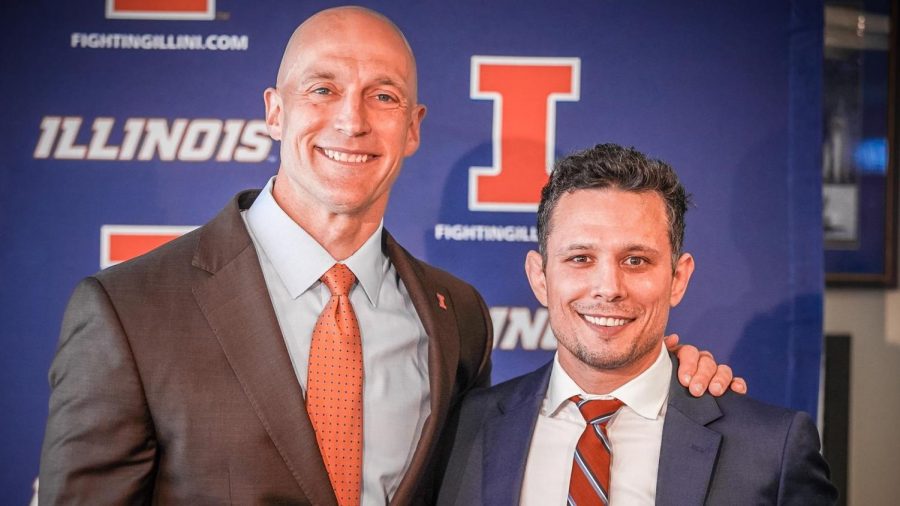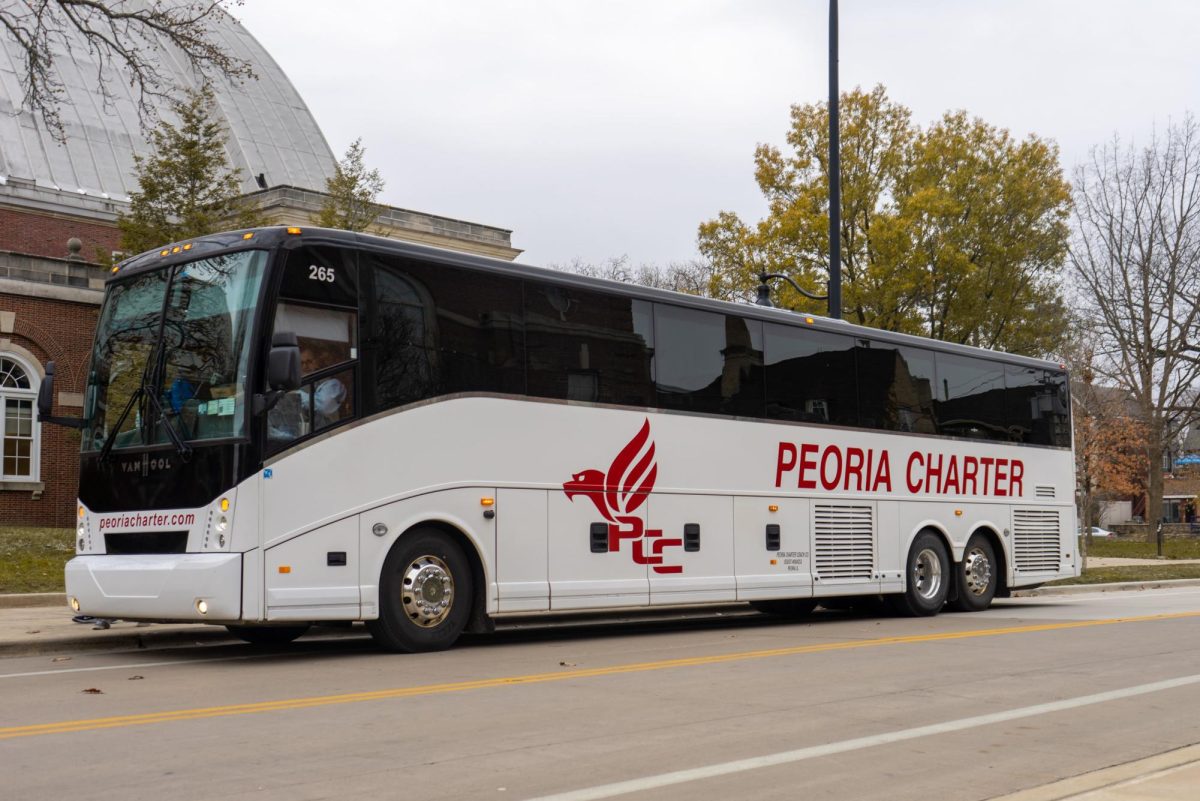Nineteen-year-old Kayleigh McCowen, sophomore in LAS, didn’t have a second to think when an undercover cop was dragging her out of Joe’s Brewery the instant a drink was placed in her hand. Her friend thought the plainclothes officer was hitting on her, and told him “Dude, she’s got a boyfriend, leave her alone” before pushing the cop in the chest.
“He looked down and saw his badge hanging and kind of took off, but instead of the cop going after the guy who just pushed him, he was hell-bent on making sure I got a ticket,” McCowen said.
This Friday, some 19 and 20-year-old students will be casually sipping their drink without a care during the Unofficial celebration.
But at one point or another, they’ll be more sly in their drinking in order to avoid detection from the increased police presence.
Although Champaign bars will only allow those 21 and over to enter this weekend — and go a step further by including a ban on hard liquors to those of age — University Police Department Patrol Division Commander Lt. Skip Frost still receives “troubling” concerns from parents over the 19-year-old bar entry policy that is in effect the rest of the year.
Get The Daily Illini in your inbox!
“Where would you rather have that 19 and 20-year-old at? Would you rather have him in a bar, in a controlled environment where there is oversight of some type, or we want to lock them all out of the bars where there is no oversight whatsoever?” Frost said.
Since managing bar checks, Sgt. Scott Friedlein of the Champaign Police Department knows just how to spot involuntary reactions of underage students in a crowded drinking environment.
“This is not something that individuals can typically control because of the nature of our bodies and the way our mind works,” Friedlein said. “The bottle put behind the leg, the bottle being dropped, the bottle being handed off to somebody else, those are observations we make continually that tell us people are drinking and they’re not supposed to be.”
Friedlein said heavily-intoxicated underage drinkers are not prioritized, but are easy targets for citations.
“Often times the more intoxicated will find their way into our bus anyways because of their conduct, but we’re trying to have a level of impact that’s a fairly efficient enforcement operation as well as effective,” Friedlein said.
Frost agreed that over-intoxication is a worsening problem on campus.
“The level of intoxication that we’re seeing now is both in severity and in quantity; it seems to be a lot worse than it was 10, 15, 20 years ago, where people are so highly-intoxicated that they can’t tell you who they are, where they live, where they came from and where they’re going”, Frost said.
Not all students have had experiences like McCowen’s.
Kevin Ofiara, junior in Business, was ticketed for his first and only time at Kam’s on a Friday night last September.
“He was a little stern, but I was cooperating, so he was rather polite,” Ofiara said.
Still underage and having a “long way to go,” Ofiara said he didn’t go out for three weeks following the ordeal.
McCowen said she went out the next two nights after she was ticketed, and has since resorted to drinking shots so she doesn’t have to be seen holding a drink in her hand.
Patrick Driscoll, junior in ACES was ticketed five times before he was assigned a meeting with a dean, and had to complete a class on drugs in general after his second. After $1,500 in fees, Driscoll joked that he should have a street named after him by now.
“I’d be willing to do 40, 45 hours (of community service) for a ticket rather than give up $300,” Driscoll said.





